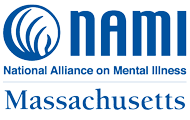This is a resource collection for older adults and their supporters
meets every other Friday
11 am – 12 pm
call-in number: 781-219-0710
hosted by the Northeast Recovery Learning Community
There’s conversation about older adult issues, a variety of topics, and self-help tools and coping skills. Learn more: https://www.nilp.org/nerlc/
meets on Thursday
1 – 2:15 pm
hosted by ANAD (National Association of Anorexia Nervosa and Associated Disorders)
Learn more: https://anad.org/get-help/about-our-support-groups/
meets on Tuesdays, 12 – 1 pm
and Thursdays, 7 – 8 pm
online
hosted by DBSA (Depression and Bipolar Support Alliance) Boston
A group for those 55+ which provides advocacy, education, support, and awareness so that all people affected by mental health conditions can build better lives. Learn more: https://dbsaboston.org/?page_id=14783
meets on Mondays
7 – 8:30 pm
online
To support mental health advocates over 50 years of age with pure peer support practices based on natural curiosity, acceptance, humor, and positive networking.
Learn more: https://www.choiceheals.com/
meets on the 3rd Wednesdays of the month
3:30 – 5 pm
online and in person
hosted by the Cambridge Women’s Center
Learn more: https://www.cambridgewomenscenter.org/monthly-calendar
Local Councils on Aging offer social support and other services to older adults in their local community.
Find your local Council on Aging: https://mcoaonline.com/what-is-a-coa/coa-directory/.
Aging and Disability Resources Consortia
Aging and Disability Resources Consortia (ADRC) provide information and referral, options counseling, and assistance with decision support and service planning for older adults and people with disabilities of any age. Each ADRC is a collaboration of the regional Aging Services Access Point, Area Agency on Aging, and Independent Living Center.
Find your Aging and Disability Resources Consortium: https://namimass.org/wp-content/uploads/Massachusetts-Aging-Disability-Resource-Consortia.pdf (pdf).
Aging Services Access Points
Aging Services Access Points (ASAPs) are regional agencies that provide information and referral, case management, elder protective service investigations, and more to support older adults living in the community. ASAPs are often co-located with Area Agencies of Aging (AAAs).
Find your Aging Services Access Point: https://www.mass.gov/location-details/aging-services-access-points-asaps-in-massachusetts.
Area Agencies of Aging
Area Agencies on Aging (AAAs) are regional agencies coordinate and offer services that help older adults remain in their homes, including home-delivered meals, homemaker assistance, and more. AAAs are often co-located with Aging Services Access Points (ASAPs).
Find your Area Agency on Aging: https://eldercare.acl.gov/.
FriendshipWorks works to reduce elder isolation by connecting volunteers with older adults for friendship and support. For people living in Boston, Brookline, Newton, Somerville and Cambridge.
Learn more: https://fw4elders.org/.
Health IDEAS supports seniors in the community struggling with depression. For people living in Boston.
Learn more: https://www.ethocare.org/program-spotlight-healthy-ideas/.
Elder Mental Health Outreach Teams connect older adults to mental health services and other resources.
Amesbury Council on Aging
https://www.amesburyma.gov/323/Council-on-Aging
Bellingham Council on Aging
https://www.bellinghamma.org/council-aging-senior-center
Community Counseling of Bristol County
https://www.comcounseling.org/services/adult-elder-services.php
Elder Services of Berkshire County
http://www.esbci.org/
Ethos
https://www.ethocare.org/emhot/
Greater Lynn Senior Services
https://www.glss.net/Help-me-find/Counseling-and-Support/Mental-Health-Counseling
LifePath
https://lifepathma.org/services/services-for-elders/mental-health-services
New Bedford Council on Aging
https://www.newbedford-ma.gov/community-services/divisions/council-aging/
Somerville Cambridge Elder Services
https://eldercare.org/find-what-you-need/advice-info/
The WRAP for Healthy Aging Workbook is an adaptation of the foundational WRAP “Red Book” designed specifically for adults aged 60 and older. Many people have used WRAP across the life span, including adapting their WRAP for the challenges of healthy aging. Learn more: https://www.wellnessrecoveryactionplan.com/product/wrap-for-healthy-aging-workbook/.
An 8-page mini zine about depression as you get older when you took things for granted. Learn more: https://www.etsy.com/listing/812200780/depression-with-age-mini-zine-mental.
Report Elder Abuse and Neglect
call 1-800-922-2275
online report
https://hssmaprod.wellsky.com/intake/
information about reporting
https://www.mass.gov/how-to/report-elder-abuse
types and signs of elder abuse
https://www.mass.gov/service-details/types-and-signs-of-elder-abuse
mandated reporter information and forms
https://www.mass.gov/service-details/who-is-a-mandated-reporter-of-elder-abuse
Elder Mental Health Collaborative
http://www.mass-smhpc.org/elder/
Older Adult Behavioral Health Network
https://www.mamh.org/education/oabhn
Leading Age Massachusetts
https://www.leadingagema.org/
Massachusetts Advocates for Nursing Home Reform
https://manhr.org/
Massachusetts Assisted Living Association
https://mass-ala.org/
Massachusetts Association of Residential Care Homes
https://maresidentialcarehomes.org/
Massachusetts Councils on Aging
https://mcoaonline.com/
Massachusetts Executive Office of Elder Affairs
https://www.mass.gov/orgs/executive-office-of-elder-affairs
Massachusetts Health Aging Collaborative
https://mahealthyagingcollaborative.org/
Massachusetts Senior Action Council
https://www.masssenioraction.org/
Massachusetts Senior Care Association
https://www.maseniorcare.org/
MassPACE Association
https://masspace.net/
Administration on Aging
https://acl.gov/about-acl/administration-aging
National Coalition on Mental Health and Aging
https://www.ncmha.org/
National Council on Aging
https://www.ncoa.org/
This guide provides important information to help understand the problem of suicide among older adults, learn the risk factors and warning signs, and how to intervene. Learn more: https://www.jfcsboston.org/Our-Services/Older-Adults/Aging-and-Mental-Health-Training/Suicide-Prevention-Guide.
This toolkit offers strategies senior centers can use to integrate suicide prevention into activities that support the well-being of older adults. It describes activities that increase protective factors and explains how to recognize the warning signs of suicide. Learn more: https://store.samhsa.gov/product/Promoting-Emotional-Health-and-Preventing-Suicide/SMA15-4416.
This toolkit equips senior living staff with resources to promote mental health, suicide prevention, and encourages active participation among residents. It includes guidelines for integrating suicide prevention into ongoing programs, hands-on tools, and training manuals. Learn more: https://store.samhsa.gov/product/Promoting-Emotional-Health-and-Preventing-Suicide/SMA10-4515.
This guide contains basic information about common mental health diagnoses; case studies; and tips, techniques, and suggested language to help people manage complex behaviors and demanding situations. Learn more: https://www.jfcsboston.org/Our-Services/Older-Adults/Aging-and-Mental-Health-Training/Mental-Health-Guide.

Contact the NAMI Mass Compass Helpline. Compass is available Monday through Friday, 10 am – 6 pm. Call us at 617-704-6264 or email us at compass@namimass.org.
